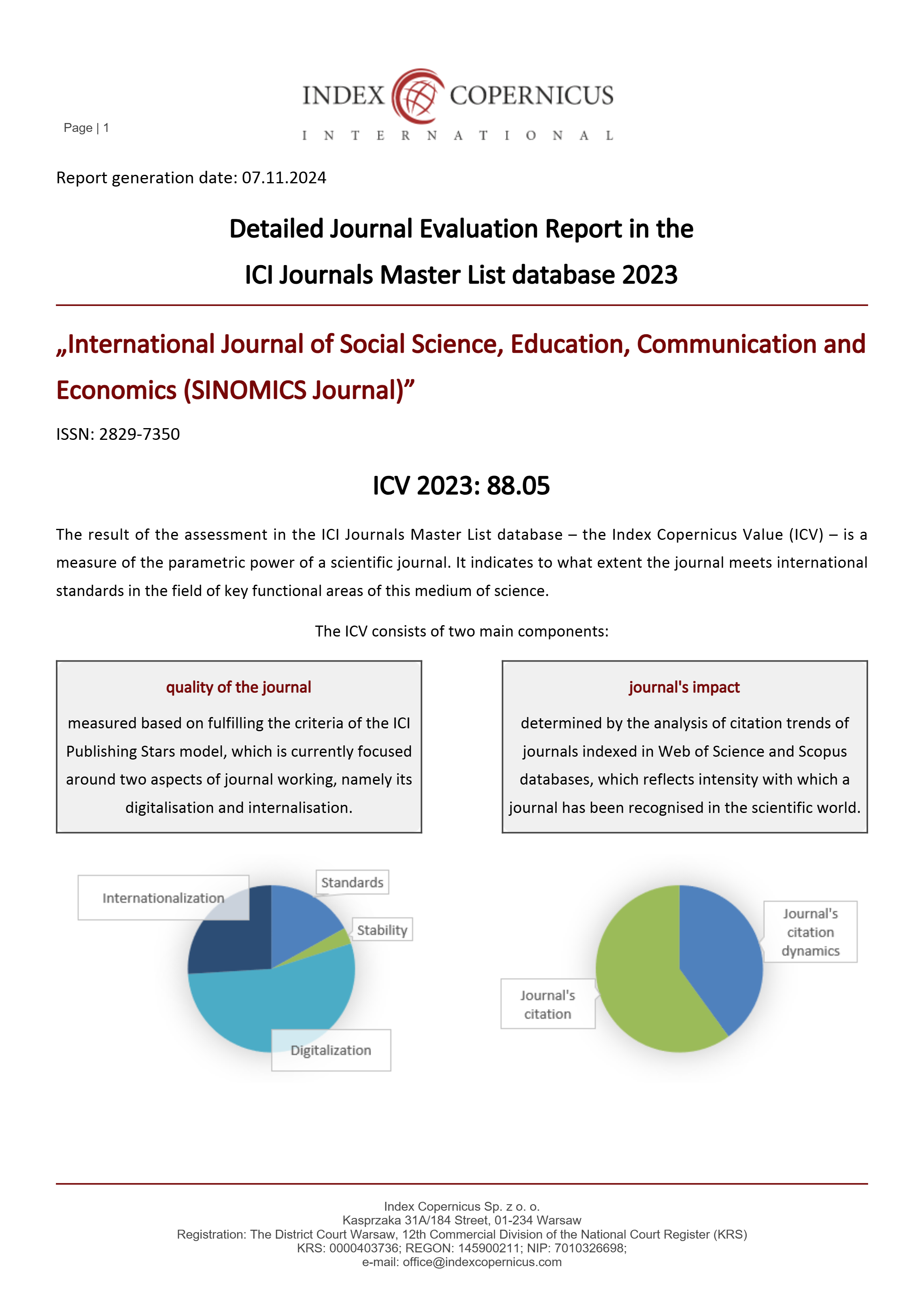The Relationship between Emotional Intelligence and Stress in Students Experiencing a Quarterlife Crisis at the Faculty of Psychology, Medan Area University
Main Article Content
Alvira Franyanti
Rachma Sisca Wardani
Sheila Rahmi Syafitri
This research aims to look at the relationship between emotional intelligence and stress in students experiencing a quarterlife crisis. The hypothesis proposed is that there is a negative relationship between emotional intelligence and stress. The population in this study was 489 psychology students at Medan Area University and the sample obtained from the screening test was 43 students. The method in this research uses quantitative methods. Distribution of the emotional intelligence scale with stress using a Likert scale. The data analysis method used in this research is Product Moment Correlation. Based on the calculation of r Product Moment analysis with coefficient value (rxy) = -0.579 and coefficient (r2) = 0.336 with p= 0.000 < 0.05. These results show that the hypothesis proposed in this research is accepted, namely that there is a negative relationship between emotional intelligence and stress. This means that the lower the emotional intelligence, the higher the stress. Another result obtained from this research is that emotional intelligence at the Faculty of Psychology, Medan Area University is indicated to be low with an average empirical value obtained of 86.35, while stress is indicated to be high with an empirical value obtained of 129.16.
Afnan, Fauzia, R., & Tanau, M. U. (2020). Hubungan Efikasi Diri dengan Stress Pada Mahasiswa yang Berada dalam Fase Quarter Life Crisis. Jurnal Kognisia, 3(1), 23–29.
Balzarie, E. N., & Nawangsih, E. (2019). Kajian Resiliensi pada Mahasiswa Bandung yang Mengalami Quarter Life Crisis. Prosiding Psikologi, 5(2).
Bressert, S. (2016). The Impact of Stress. Psych Central. https://psychcentral.com/lib/the-impact-of-stress#6
Cahya, F. D., Meiyuntariningsih, T., & Aristawati, A. R. (2021). Emotional Intelligence dengan Stress Pada Dewasa Awal yang Berada Dalam Fase QLC (Quarter-Life Crisis). Fakultas Psikologi, Universitas 17 Agustus 1945 Surabaya, 1–13.
Fischer, K. (2008). Ramen Noodles, rent and resumes: an after-collage guide to life. SuperCollageLLC.
Goleman, D. (2015). Emotional Intelligence. Gramedia Pustaka Utama.
Habibie, A., Syakarofath, N. A., & Anwar, Z. (2019). Peran Religiusitas terhadap Quarter-Life Crisis (QLC) pada Mahasiswa. Gadjah Mada Journal of Psychology (GamaJoP), 5(2), 129. https://doi.org/10.22146/gamajop.48948
Muhnia, M., Isnah, W. O. N., & Hapsah, H. (2019). Relationship Between Emotional Intelligence With Stress Level of First Year Student in Nursing Program Study Medical Faculty Hasanuddin University. Indonesian Contemporary Nursing Journal (ICON Journal), 2(2), 1. https://doi.org/10.20956/icon.v2i2.7675
Nasrani, L., & Purnawati, S. (2016). Perbedaan Tingkat Stres Antara Laki-laki dan Perempuan Pada Peserta Yoga Di Kota Denpasar. Jurnal Medika Udayana. https://ojs.unud.ac.id/index.php/eum/article/view/18109
Nengsih, P. (2019). Hubungan Antara Kecerdasan Emosional dengan Sense of Humor Dengan Stres Pada Mahasiswa. Universitas Islam Negeri Sultan Syarif Kasim Riau.
Slamet, S., & Markam, S. (2007). Pengantar Psikologi Klinis. UI PRESS.
Triono, J. (2014). Hubungan Antara Kepribadian dan Dukungan Sosial Dosen Pembimbing Skripsi Dengan Stres Pada Mahasiswa Yang Sedang Menyusun Skripsi. Universitas Islam Negeri Sultan Sarif Kasim Riau.






